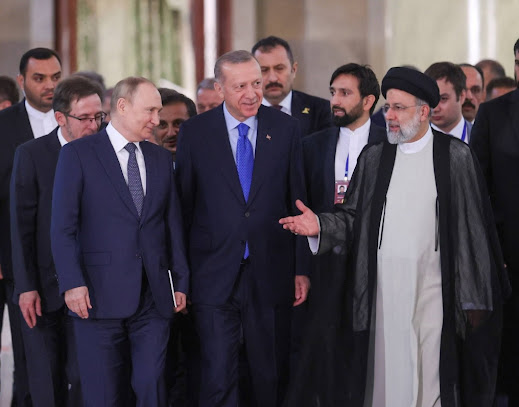
Western Media Review: After the Ukraine war, the West has become more isolated
A year after the war in Ukraine, the West has never been more isolated, Politico reported Thursday.
The newspaper said, "The war in Ukraine accelerated the development of a post-Western world, and given current trends, it seems that this world may be more united, but also more isolated from the rest."
She added, "A year after the war in Ukraine, European and American governments defied critics with an extraordinary display of unity," asking: "But has this internal cohesion been achieved at the expense of external influence?"
This is the main question explored in a new survey by the European Council on Foreign Relations and the Europe in a Changing World project at Oxford University, which covers public opinion from 10 European countries and five from other regions of the world.
According to the results of the survey, while the war brought the West closer together, it also revealed a gap between the West's perception of Russia and the war, and the perception of other countries, and part of this gap comes from radically different perceptions of the state of the world.
Citizens from Europe and non-Western countries share the same conviction that the US-led liberal order is over, but their understanding of what kind of order will come next differs sharply, according to the survey.
He also revealed that many in the West believe, through the legacy of the Cold War, that we are entering a bipolar world dominated by the United States and China, but in other parts of the world, they do not believe this division. The fundamental reason for this is that from the perspective of those in China, Turkey or Russia, we are entering a multipolar world between many centers of power, not a bipolar one.
In other words, the citizens of these countries believe that fragmentation into different systems will determine the future. In this scenario, the entire West would be just one center of power among many others, which would not single-handedly define order and lead global democracy.
According to the newspaper, the most fundamental reason for this view is that people in non-Western major powers now tend to believe that they also represent a real democracy. % of Indians, 36% of Turks, and 20% of Russians.
The newspaper pointed out that with Western governments anticipating the return of the Cold War-type bipolarity between democracy and tyranny, they often tend to view countries such as India and Turkey as swing states that can be persuaded to take sides, pointing out that "these countries see themselves completely differently, As emerging great powers, they may side with the West on some issues, but not on everything.
She also reported that "the ability of the West to work alongside those international partners who have a different understanding of the conflict will have an important impact on the outcome of the war, as well as on the shape of geopolitics," noting that "it takes humility to see countries like India, Brazil and Turkey as partners." In shaping the future system, not as players being moved to the right side of history."













































